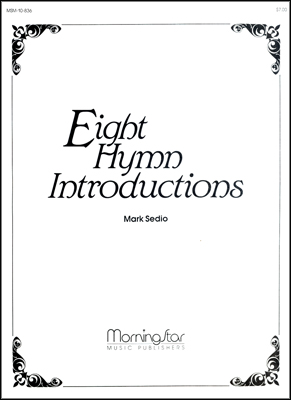- |
User Links
All Men Living Are But Mortal

All men living are but mortal
Author: Johann Georg Albinus; Translator (st 5): Anonymous; Translator (sts. 1-4, 6, 7): Catherine Winkworth (1827-1878, alt.)Tune: SALZBURG (Hintze)
Published in 4 hymnals
Printable scores: PDF, MusicXMLAudio files: MIDI
Representative Text
1 All men living are but mortal
and will surely fade as grass;
only through death's gloomy portal
to eternal life we pass.
When this body here has perished,
then will heav'nly joys be cherished
where the saints, in glorious dress,
live and reign in righteousness.
2 Therefore, when my God shall choose it,
willingly I'll yield my life,
nor will grieve that I should lose it,
with its sorrow, pain, and strife.
In my dear Redeemer's merit
peace has found my troubled spirit,
and in death my comfort this:
Jesus' death my source of bliss.
3 Jesus for my sake descended
my salvation to obtain:
death and hell for me are ended,
peace and hope are now my gain.
With great joy I leave earth's sadness
for the home of heav'nly gladness,
where I shall forever see
God, the Holy Trinity.
4 There is joy beyond our telling,
where so many saints have gone;
thousands, thousands, there are dwelling,
worshiping before the throne.
There the angel hosts are shining,
evermore in chorus joining:
"Holy, holy, holy, Lord!
Triune God, by all adored!"
5 Patriarchs of sacred story
and the prophets there are found;
twelve apostles, bright with glory,
on twelve seats are there enthroned.
All the saints are there ascended
age on age, through time extended,
there in blissful concert sing
hallelujahs to their King.
6 O Jerusalem, how glorious
are your heav'nly mansions fair!
I can hear the tones victorious
ever sweetly sounding there.
Oh, the bliss that there surprises!
Look, my soul, the sun now rises,
and the breaking day I see
that shall never end for me.
7 Now I see what here was told me,
see that wondrous glory shine,
feel the spotless robes enfold me,
know a golden crown is mine.
Thus before the throne so glorious
now I stand, a soul victorious,
filled with purest joy and peace
that in Christ shall never cease.
Source: Christian Worship: Hymnal #840
Author: Johann Georg Albinus
Albinus, Johann Georg eldest s. of Zacharias Albinus, pastor at Unter-Nessa, near Weissenfels, Saxony, 1621-1633, and at Stuhlburgwerben, 1633-1635, was b. at UnterNessa, March 6, 1624. After his father's death, in 1635, he was, in 1638, adopted by his cousin, Lucas Pollio, diaconus at St Nicholas's Church in Leipzig. After his cousin's death, in 1643, the Court preacher, Sebastian Mitternacht, of Naumburg, took an interest in him, and he remained at Naumburg till he entered the University of Leipzig, in 1645. He studied for eight years at Leipzig, during which time ho acted as house tutor to the Burgomaster, Dr. Friedrich Kuhlwein, and was then, in 1653, appointed Eector of the Cathedral School at Naumburg. This post he resigned when, in… Go to person page >Translator (st 5): Anonymous
In some hymnals, the editors noted that a hymn's author is unknown to them, and so this artificial "person" entry is used to reflect that fact. Obviously, the hymns attributed to "Author Unknown" "Unknown" or "Anonymous" could have been written by many people over a span of many centuries. Go to person page >Translator (sts. 1-4, 6, 7): Catherine Winkworth
 Catherine Winkworth (b. Holborn, London, England, 1827; d. Monnetier, Savoy, France, 1878) is well known for her English translations of German hymns; her translations were polished and yet remained close to the original. Educated initially by her mother, she lived with relatives in Dresden, Germany, in 1845, where she acquired her knowledge of German and interest in German hymnody. After residing near Manchester until 1862, she moved to Clifton, near Bristol. A pioneer in promoting women's rights, Winkworth put much of her energy into the encouragement of higher education for women. She translated a large number of German hymn texts from hymnals owned by a friend, Baron Bunsen. Though often altered, these translations continue to be used i… Go to person page >
Catherine Winkworth (b. Holborn, London, England, 1827; d. Monnetier, Savoy, France, 1878) is well known for her English translations of German hymns; her translations were polished and yet remained close to the original. Educated initially by her mother, she lived with relatives in Dresden, Germany, in 1845, where she acquired her knowledge of German and interest in German hymnody. After residing near Manchester until 1862, she moved to Clifton, near Bristol. A pioneer in promoting women's rights, Winkworth put much of her energy into the encouragement of higher education for women. She translated a large number of German hymn texts from hymnals owned by a friend, Baron Bunsen. Though often altered, these translations continue to be used i… Go to person page >Text Information
| First Line: | All men living are but mortal |
| Title: | All Men Living Are But Mortal |
| German Title: | Alle Menschen müssen sterben |
| Author: | Johann Georg Albinus |
| Translator (sts. 1-4, 6, 7): | Catherine Winkworth (1827-1878, alt.) |
| Translator (st 5): | Anonymous |
| Meter: | 8.7.8.7.8.8.7.7 |
| Language: | English |
| Copyright: | Public Domain |
Tune
SALZBURG (Hintze)The tune SALZBURG, named after the Austrian city made famous by Wolfgang Amadeus Mozart, was first published anonymously in the nineteenth edition of Praxis Pietatis Melica (1678); in that hymnbook's twenty-fourth edition (1690) the tune was attributed to Jakob Hintze (b. Bernau, Germany, 1622; d. B…
[Jesu, meines Lebens Leben] (11756)
The composer of the tune is unknown; it was first published in Das grosse Cantional: oder Kirchen-Gesangbuch (Darmstadt, 1687) to the text "Alle Menschen mussen sterben" by J. G. Albinus; some Baroque organ works are associated with that text. The tune became associated with Homburg's text since the…


 My Starred Hymns
My Starred Hymns





